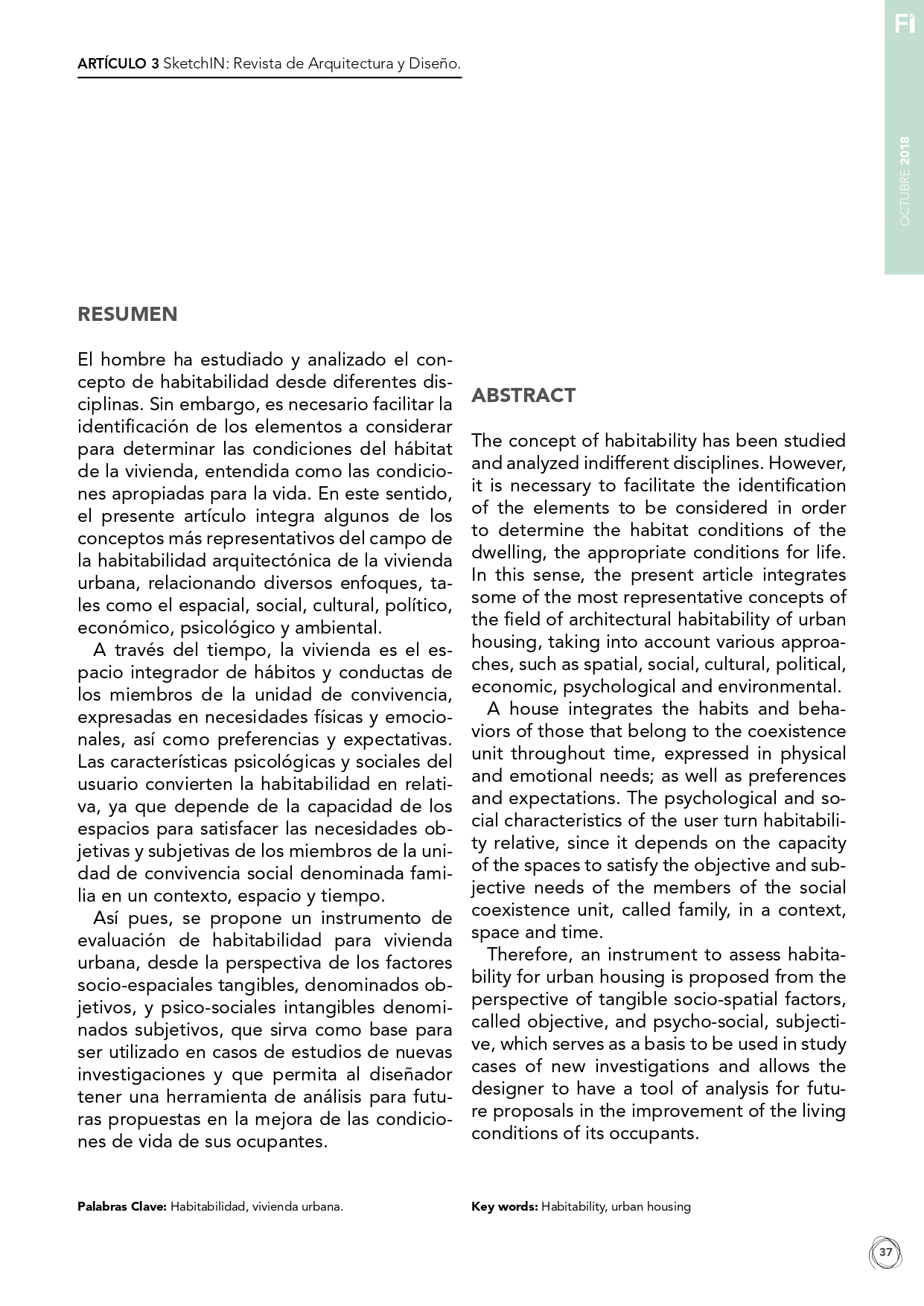Abstract
The concept of habitability has been studied and analyzed indifferent disciplines. However, it is necessary to facilitate the identification of the elements to be considered in order to determine the habitat conditions of the dwelling, the appropriate conditions for life. In this sense, the present article integrates some of the most representative concepts of the field of architectural habitability of urban housing, taking into account various approaches, such as spatial, social, cultural, political, economic, psychological and environmental.
A house integrates the habits and behaviors of those that belong to the coexistence unit throughout time, expressed in physical and emotional needs; as well as preferences and expectations. The psychological and social characteristics of the user turn habitability relative, since it depends on the capacity of the spaces to satisfy the objective and subjective needs of the members of the social coexistence unit, called family, in a context, space and time.
Therefore, an instrument to assess habitability for urban housing is proposed from the perspective of tangible socio-spatial factors, called objective, and psycho-social, subjective, which serves as a basis to be used in study cases of new investigations and allows the designer to have a tool of analysis for future proposals in the improvement of the living conditions of its occupants.

This work is licensed under a Creative Commons Attribution-NonCommercial 4.0 International License.

